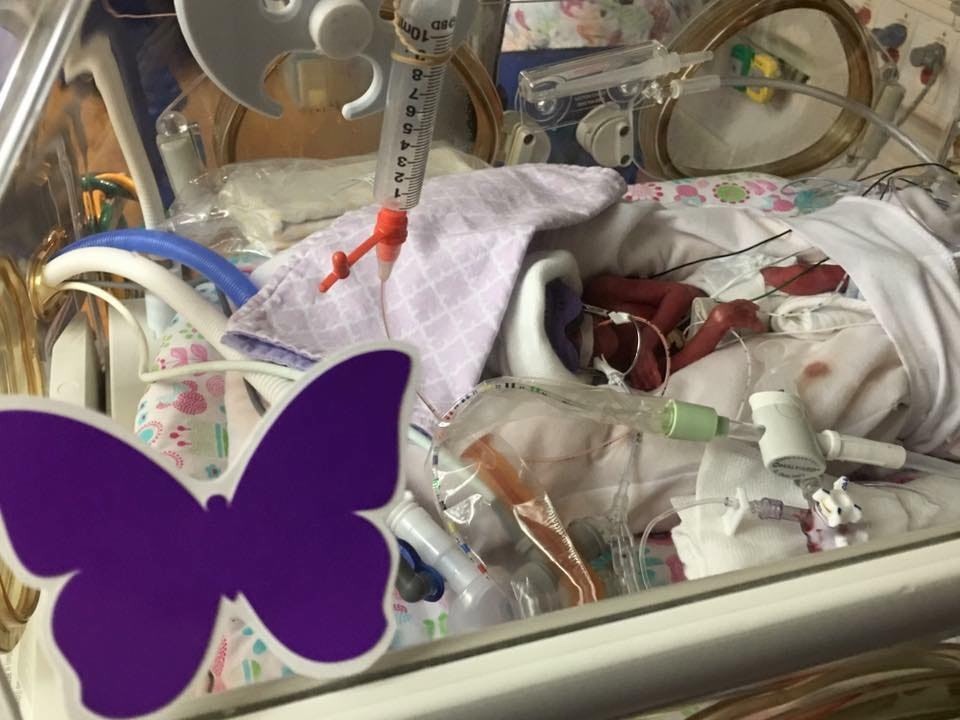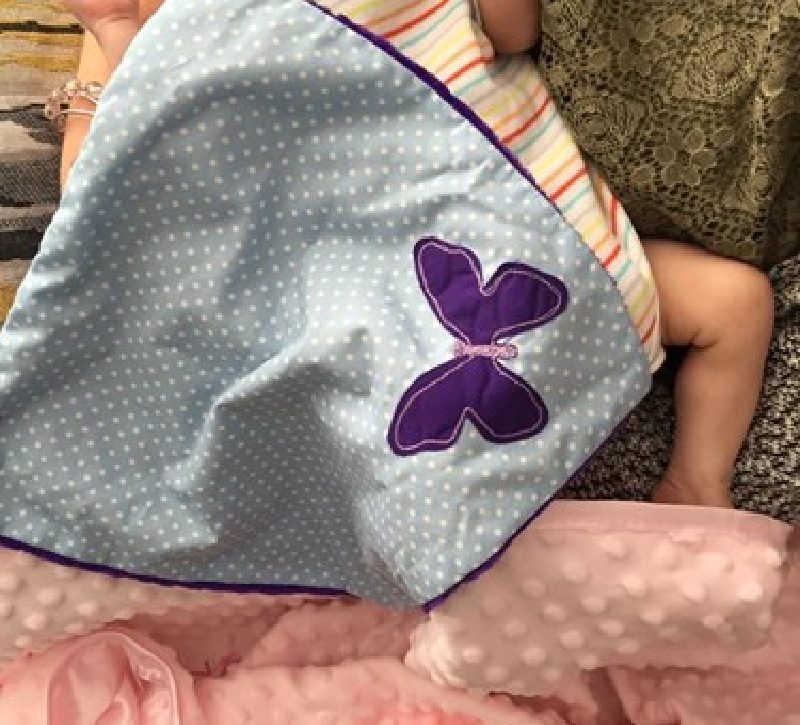If You See a Purple Butterfly Sticker Next to a Newborn, Here’s What It Means
The delivery room was supposed to be filled with joy. But for Millie Smith and her partner, Lewis Cann, it became a place where joy and heartbreak collided.
Millie had always sensed she might be carrying twins—her family was full of them. When doctors confirmed it, she smiled through her tears, already imagining the double giggles, the double cuddles. But within moments, that dream was shattered.
The ultrasound revealed something devastating: one of the babies would not survive. Their little girl had anencephaly, a condition where parts of the brain and skull never fully form. The doctors explained, gently but firmly, that survival was impossible.
Millie and Lewis knew they would have to meet their daughter only to say goodbye.

They named her Skye.
“Even if she only had minutes, she deserved to be someone,” Millie said. “She deserved a name.”
The name carried meaning. Skye would never walk the earth, but she would live forever above it. Every time her parents looked up at the sky, she would be there—limitless, untouchable, eternal.
When the twins arrived prematurely at thirty weeks, Millie and Lewis clutched Skye in their arms. She lived for just three hours. Three fragile, sacred hours. Long enough for her parents to whisper I love you a thousand times. Long enough to leave a lifetime of love in their hearts.
But when Skye passed, the silence afterward was almost worse.
At first, the hospital staff spoke her name. They let Millie and Lewis spend time in the Daisy Room—a private space where grieving parents can say goodbye. But outside that room, the world seemed to erase her. Skye wasn’t mentioned again.
And that was when the hardest wound appeared—not the loss itself, but the forgetting.
As Millie cared for Skye’s surviving twin, Callie, she often felt invisible as a mother of two. One day, another NICU mother glanced at Callie and said lightly, “You’re lucky you don’t have twins.”
The words cut like glass. Millie broke. She ran from the room in tears, unable to explain that she did have twins—that she always would. One simply wasn’t here anymore.

That moment planted a seed. A desperate need.
What if there were a way to silently tell others? A symbol that carried both pain and remembrance, so no grieving parent would have to explain the unexplainable?
From her grief, Millie created something powerful: the Purple Butterfly Sticker.
A small, simple image placed on the incubator—delicate, like the life it honors. The butterfly represents a soul that has taken flight, and purple, a color not bound to boy or girl, ensures every child is remembered.
One sticker tells a story: This baby had a sibling. That sibling is no longer here.
The idea spread quickly. Nurses embraced it. Hospitals adopted it. And soon, the Purple Butterfly Campaign was born, under the foundation Millie named after her daughter—Skye High.
What began as one mother’s desperate wish to protect her child’s memory has become an international symbol of compassion.
Today, Millie and Lewis’s surviving twin, Callie, is seven years old—a bright, laughing reminder that love endures. And through the purple butterflies now seen in neonatal units around the world, Skye’s short life continues to touch countless others.
So if you ever see a purple butterfly sticker in a NICU, pause. Know that behind it is a story of love, loss, and remembrance.
A story of a baby whose name, though whispered for only hours, will never be forgotten.